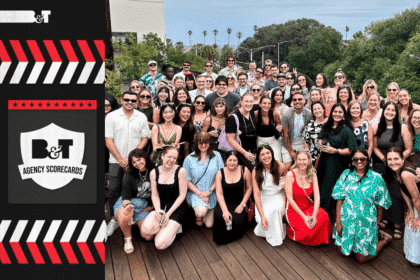Here, Alfie Lagos, director and founder of Lexlab writes that while some AI-powered search is currently pretty crappy, not all of it is. And it won’t be long until we’re all using it.
I decided to take the plunge and set ChatGPT’s Search GPT as my default in Chrome.
It seemed like a good idea at the time, but it didn’t take long to realise just how much Google’s search experience relies on its vast web of integrations—maps, local knowledge, reviews, and everything else we’ve come to expect almost instinctively.
Without these, Search GPT felt a bit like a search engine that’s just moved to town and hasn’t quite figured out the neighbourhood yet.
Perplexity’s advantage with local searches
Using AI-powered answer engine Perplexity alongside Search GPT highlighted the gap in local functionality even further.
Perplexity handles everyday, location-based searches with ease, almost as if it actually knows where I am (imagine that). For example, when searching for “local cafe”, Perplexity didn’t just give me a list of cafes nearby; it offered details like atmosphere, opening hours, and even accessibility features.
Search GPT, on the other hand, showed me some charming cafes in Sydney—lovely suggestions, but about 800 kilometres off the mark.

I tried adjusting my settings, enabling location tracking – the works. But in the end, Search GPT seemed committed to its vision of me as a Sydneysider. Here’s an example of the results it gave me:

Sticking with Perplexity for AI search
In the end, I realised there’s no need to juggle two AI search engines. For quick, straightforward answers or location-based queries, Perplexity handles things well—its responses feel more complete and context-aware. For deeper, project-specific work, I still rely on ChatGPT’s enterprise features and custom GPTs at Lexlab, which is where it really shines. Search GPT, though promising, still has some catching up to do before it’s ready to replace my everyday search.
For brands looking to incorporate AI-powered search tools like Search GPT into their strategies, there are key opportunities and watch outs to keep in mind. On the opportunity side, these platforms provide a chance to capture user attention through highly specific, question-based content that resonates with AI models. Ensuring your content is easily digestible by these systems—structured data, concise answers, and clear attribution—will increase your chances of being surfaced in results. However, brands must also be cautious about over-relying on AI search traffic, especially given the challenges around accuracy and potential bias. Regular monitoring of how your brand is represented on these platforms is essential to mitigate risks and maintain trust.
The growing prevalence of “zero-click searches,” where users find answers directly within search results without visiting external websites, is another game-changer for brands planning SEO strategies. Nearly 25% of desktop searches and 17% of mobile searches now result in zero-clicks, according to recent data. For brands, this means focusing on structuring content for AI platforms, ensuring accuracy, and optimising for featured snippets to remain visible and relevant in a world where fewer users are clicking through to websites. Metrics like page views may no longer tell the full story, and brands must adapt their KPIs to assess visibility and engagement within these AI-driven platforms.
For Search GPT to truly compete, it would need improvements like a working map integration, accurate locality tracking, and more detailed information on businesses and services. Perplexity’s cafe results, for example, provided insights on atmosphere and pricing—details that make a difference when you’re deciding where to go.

AI-based search has enormous potential, but there’s still work to be done before it can match the robust, multi-layered experience of traditional engines. For now, Google remains my primary source for complex searches, while Perplexity is my go-to for simpler, AI-driven answers that feel quick and complete. As for Search GPT—it’s got potential, but I’ll be waiting to see how it matures.
So, for my everyday searches, my default browser will definitely be staying with Google. But if “GPT vs regular search” were a pie chart, there’s no question that the slice representing GPT-powered searches is steadily growing.








